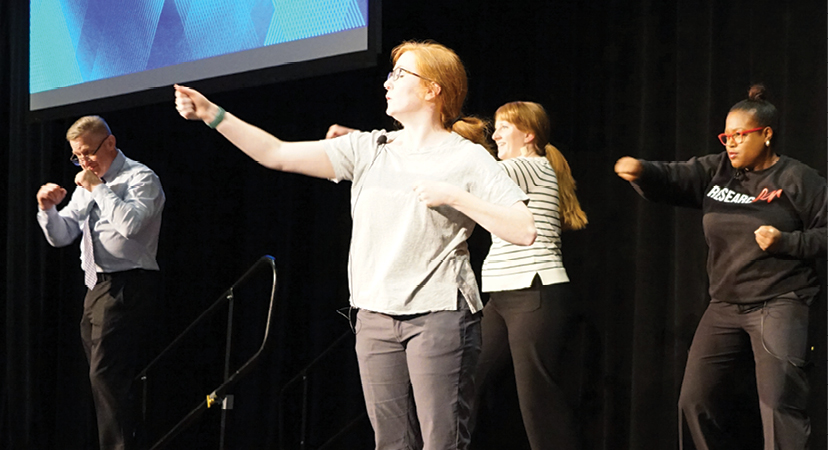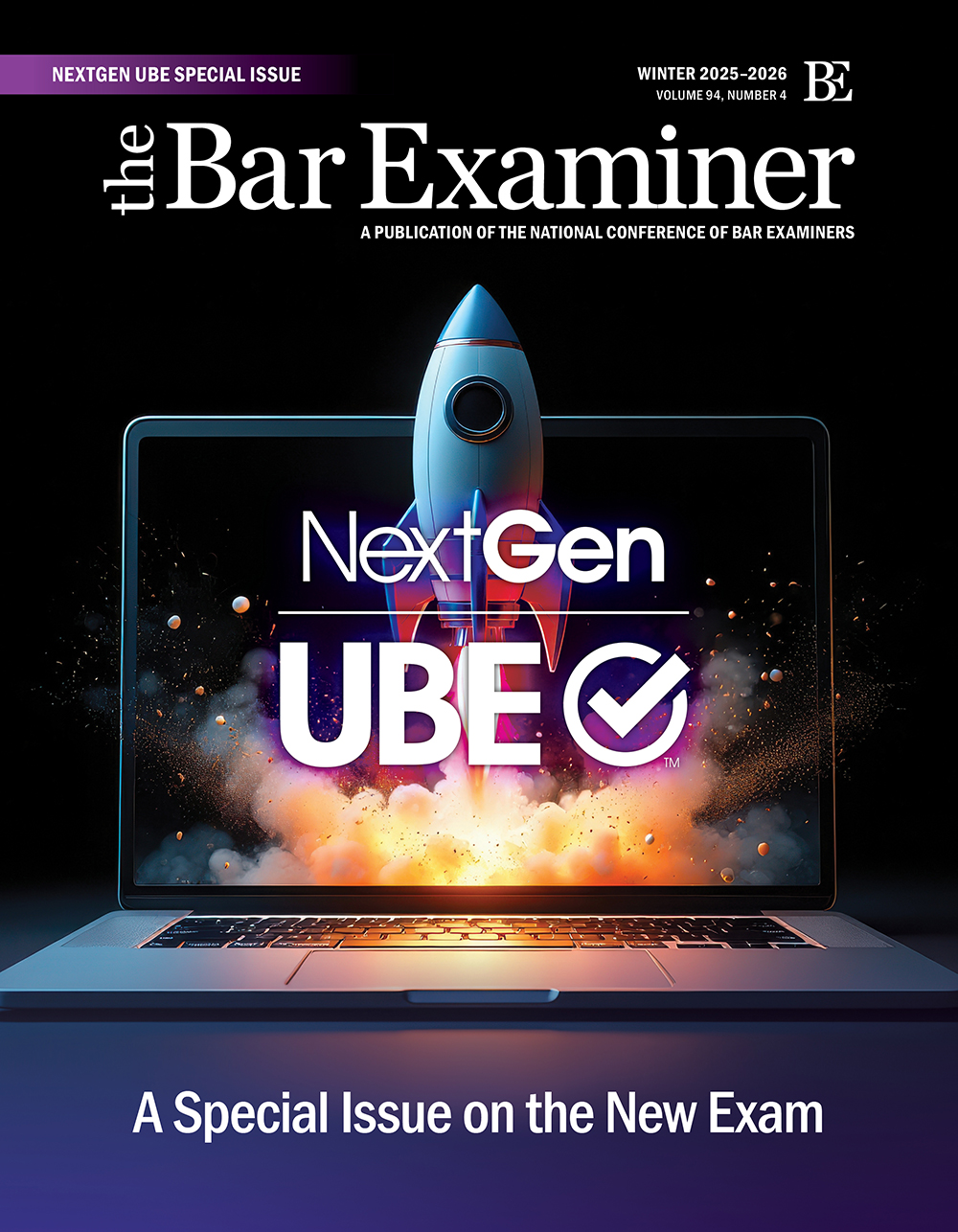This article originally appeared in The Bar Examiner print edition, Summer 2025 (Vol. 94, No. 2), p. 46-53. 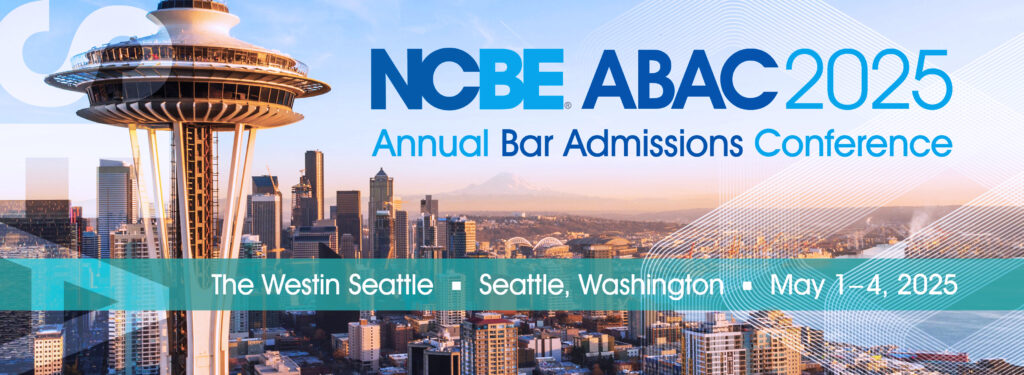
May 1–4, 2025 | Seattle, Washington
The NCBE Annual Bar Admissions Conference is an educational event designed for members of the bar examining and admissions community. Attendees include justices from jurisdictions’ highest courts, bar admission administrators, and members of boards of bar examiners, all of whom direct the bar admissions process in their jurisdictions. The conference focuses on the issues that influence the licensing of lawyers both today and in the future.
NCBE held its 2025 Annual Bar Admissions Conference in Seattle on May 1–4. All 56 US jurisdictions were represented by the 375 attendees, which included 79 first-time attendees and 53 justices from jurisdictions’ highest courts.
Thursday afternoon kicked off conference programming with a roundtable for the justices in attendance, followed by the evening opening reception. Judith Gundersen, NCBE President and CEO, and Darin B. Scheer, NCBE Board of Trustees Chair, welcomed attendees on Friday morning. NCBE Education Committee Chair Hon. Scott Bales (ret.) and Council of Bar Admission Administrators Chair Sherry Hieber welcomed attendees on Saturday. Session descriptions are presented below as published in the conference program.
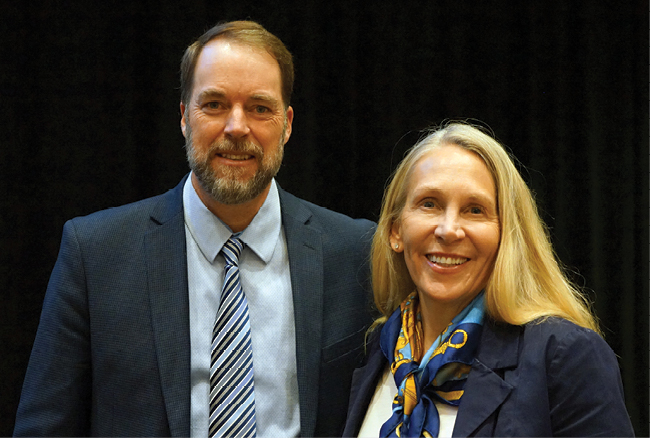
Darin B. Scheer, NCBE Board of Trustees Chair; Judith Gundersen, NCBE President and CEO

Hon. Scott Bales (ret.), NCBE Education Committee Chair; Sherry Hieber, CBAA Chair
Plenary Sessions
The Path to Practice
Nikia Gray, Judith Gundersen, Susan Krinsky, Jennifer Rosato Perea, Kevin Washburn
Leaders from NALP, NCBE, LSAC, the ABA’s Section on Legal Education, and the legal academy share their unique perspectives on the evolving pathway to practice, providing insights to inform discussions throughout the conference weekend.

The Path to Practice Kevin Washburn, Jennifer Rosato Perea, Susan Krinsky, Nikia Gray, Judith Gundersen, Darin B. Scheer (moderator)

Moving Minds: From Research Excellence to Jurisdictional Impact
Jade Caines Lee, PhD; Jean Goetz Mangan; Danette Waller McKinley, PhD; Brian Sites; Albert Yoon, PhD
Collaborate with colleagues in an energizing session that connects pioneering research with practical solutions. First, experience how physical movement enhances learning through peer-led engagement. Then, three award-winning researchers share their breakthrough findings on fostering motivation and building comprehensive support networks throughout the legal education and licensure journey. Finally, participants synthesize research with practitioner wisdom in collaborative learning circles to develop concrete, actionable plans for their jurisdictions.

Moving Minds: From Research Excellence to Jurisdictional Impact Augustin Rivera, Jr. (moderator); Jade Caines Lee, PhD; Danette Waller McKinley, PhD; Jean Goetz Mangan; Albert Yoon, PhD; Brian Sites
The AI Revolution in Law: Navigating Education, Practice, and Ethics
Andrew Perlman
Explore how artificial intelligence has transformed the legal profession, starting in law school and extending through professional ethics and attorney discipline. Discover how legal professionals can responsibly integrate new technology while upholding our core professional values and honoring human judgment. This exploration will provide practical strategies for adopting AI, ensuring ethical compliance, and fostering professional development in an AI-enhanced legal landscape.

The AI Revolution in Law: Navigating Education, Practice, and Ethics Andrew Perlman, Hon. Scott Bales (ret.) (moderator)
Breakout Sessions and Workshops
Read Between the Lines: Law Schools and Character and Fitness Issues
Joel Nichols
Join this session to unpack the complex factors in character and fitness evaluations. By exploring law schools’ competing priorities, distinguishing between pre- and post-enrollment issues, and examining academic versus nonacademic concerns, learn critical insights for understanding disclosure requirements and making admission decisions.

Read Between the Lines: Law Schools and Character and Fitness Issues Joel Nichols, Lisa Perlen (moderator)
Remote Courts 2.0: Leveraging Technology to Build Sustainable Justice Systems
Lauryn Gouldin; Margaret Hagan, PhD; Erika Rickard
Explore the transformative potential and inherent risks of using artificial intelligence in judicial environments. This session will highlight innovative research and practical system approaches to increasing access to justice and creating sophisticated hybrid justice systems that utilize technological advances while preserving procedural fairness.
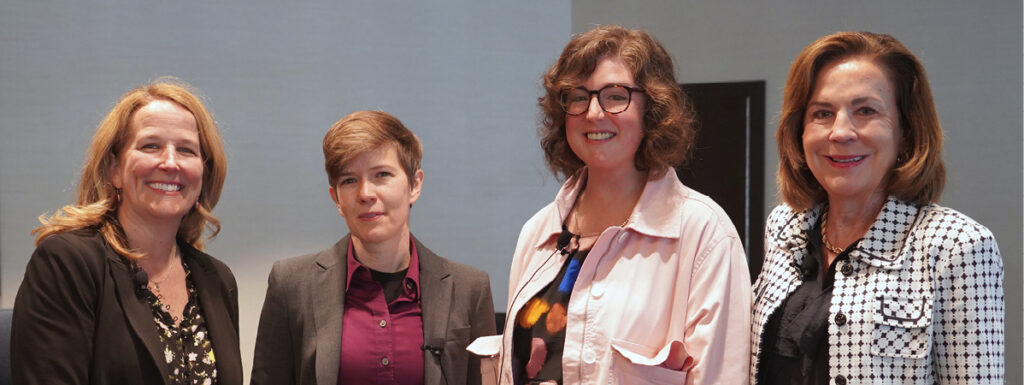
Remote Courts 2.0: Leveraging Technology to Build Sustainable Justice SystemsLauryn Gouldin; Erika Rickard; Margaret Hagan, PhD; Hon. Mary Russell (moderator)
NextGen: Where We Are and What’s Next
Timothy Davis; Kara Smith, PhD
This session provides attendees with an understanding of the current NextGen landscape and maps out key milestones for the year ahead.

NextGen: Where We Are and What’s NextTimothy Davis; Kara Smith, PhD; Pieter Teeuwissen (moderator)
Financial Fitness: Meeting Bar Admission Character Requirements
Luz Carrion; Chad Heald; Michael Jenuwine, PhD
Take part in a thoughtful examination of the financial obligations and responsibilities of bar applicants, including the importance of financial disclosure, credit maintenance, and effective debt management. Learn about the growing issue of gambling behavior among law students and licensed attorneys and a valuable program aimed at assisting new practitioners in establishing a financially ethical and compliant practice.

Financial Fitness: Meeting Bar Admission Character Requirements Luz Carrion; Chad Heald; Michael Jenuwine, PhD; Shelice Tolbert (moderator)
Mapping Minimal Competence: Performance Level Descriptors and Standard Setting
Beth Donahue; Danette Waller McKinley, PhD; Bob Schwartz, PhD
Discover essential approaches to defining minimum competence in legal licensure through performance level descriptors and standard setting. Learn proven methodologies for developing precise, legally defensible PLDs that clearly articulate examinee competence and explore how standard setting establishes credible passing scores that protect the public and maintain professional standards.

Mapping Minimal Competence: Performance Level Descriptors and Standard SettingMarilyn Wellington (moderator); Beth Donahue; Bob Schwartz, PhD; Danette Waller McKinley, PhD
Navigating Modern Test Accommodation Challenges
John Hosterman, PhD
This session explores emerging challenges in exam accommodations, including misconceptions about disability status, online documentation validity, and academic-to-licensure accommodation transfer. A disability expert serving 20+ testing organizations shares case studies and practical solutions for managing increased accommodation requests and ADA compliance.

Navigating Modern Test Accommodation Challenges John Hosterman, PhD; Brad Gilbert (moderator)
Cannabis Law Variations: Impact on Attorney Character and Fitness
Margaret Funk, Mark Gifford
Discover how jurisdictions’ different marijuana regulatory frameworks affect attorney licensure and professional responsibility, especially the role cannabis- related activities, including prior use, industry employment, client representation, and business investments, can play in the character and fitness process.

Cannabis Law Variations: Impact on Attorney Character and FitnessPaul Schwiep (moderator), Margaret Funk, Mark Gifford
Ensuring Candidate Knowledge of Local Law
Catherine Crooks Hill, Karen Laneaux, Jeff Shipley
Panelists reveal their strategies for testing jurisdiction- specific content and explore how different delivery formats—from standalone courses to additional examinations—achieve jurisdiction objectives.

Ensuring Candidate Knowledge of Local LawJeff Shipley, Catherine Crooks Hill, Karen Laneaux, Hon. Cynthia Martin (moderator)
Community-Powered Justice: Transforming Legal Access Through Advocate Training
Antonio Coronado; Maggie Humm; Rebecca Sandefur, PhD
Join national thought leaders to examine research into how individuals navigate everyday legal challenges, focusing on successful community-based solutions. We’ll explore two transformative programs: the Innovation for Justice virtual social justice lab and Alaska’s Community Justice Worker Program. Discover how these structured training initiatives equip advocates to provide sustainable, accessible legal assistance in their communities.

Community-Powered Justice: Transforming Legal Access Through Advocate Training Antonio Coronado; Rebecca Sandefur, PhD; Maggie Humm; Hon. Robert Torres, Jr. (moderator)
Verifiable Progress: Monitoring Attorney Rehabilitation and Compliance
Lauren Castor, LPC-MHSP (t); Kandace Kukas, EdD; Eric Lohrenz
Investigate approaches for monitoring individuals facing substance use, mental health, and other challenges requiring intervention. Learn to establish clear markers of rehabilitation, implement verifiable compliance protocols, and design monitoring systems that effectively document recovery progress while maintaining appropriate confidentiality and supporting successful returns to practice.

Verifiable Progress: Monitoring Attorney Rehabilitation and ComplianceEric Lohrenz; Kandace Kukas, EdD; Lauren Castor, LPC-MHSP (t); Daniel Johnson (moderator)
Judicial Perspectives on Paths to Licensure (justices only)
Hon. G. Barry Anderson (ret.); Hon. Serge Georges, Jr.; Hon. Ann Scott Timmer
Jurists from Minnesota, Massachusetts, and Arizona share their insights on alternate approaches to attorney licensure, such as law office study and apprenticeships, curricular programs, and limited-license legal practitioners.

Judicial Perspectives on Paths to LicensureHon. Ann Scott Timmer; Hon. Serge Georges, Jr.; Hon. G. Barry Anderson (ret.); Hon. Dustin Rowe (moderator)
NextGen Grading: Item Types and Rubrics
Terence Devine, Mike Gianelloni, Wendy Light, Gina Nerger, Sonja Olson
This hands-on workshop transforms abstract grading principles into practical expertise. Learn how graders will transition to absolute grading through real Next-Gen items, responses, and grading rubrics, and develop techniques for maintaining grading consistency across your team.

NextGen Grading: Item Types and RubricsMike Gianelloni, Wendy Light, Gina Nerger, Terence Devine, Sonja Olson, Christopher Hawks (moderator)
Building an Ethical Profession Through Curriculum Reform
Hemanth Gundavaram, Neil Hamilton
As legal professional ethics become more complex, educators must connect theory with practice. This session showcases strategies for integrating ethical training into the law school curriculum, empowering faculty to drive meaningful change. Learn how the academy can transform traditional coursework into engaging experiences that promote technical excellence and moral leadership.

Building an Ethical Profession Through Curriculum ReformNeil Hamilton, Marie Thomas Griffith (moderator), Hemanth Gundavaram
NextGen Feedback and Q&A: A Session for Justices (justices only)
Judith Gundersen; Kara Smith, PhD; Marilyn Wellington
This is a justices-only question and answer session on how the new bar exam will impact attorney admissions.

NextGen Feedback and Q&A: A Session for Justices Marilyn Wellington; Judith Gundersen; Kara Smith, PhD
Even More to the Story: Research Uncovering Legal Education Insights
Mandy Christman, Danette Waller McKinley, PhD; Hilary Symes, PhD
New research uncovers success patterns in legal education by analyzing law school outcomes, exploring geographic mobility factors and attorney migration trends, and how online forums such as r/barexam have created expanded whole-life support systems for examinees.

Even More to the Story: Research Uncovering Legal Education InsightsDanette Waller McKinley, PhD; Hilary Symes, PhD; Mandy Christman; Raul Ruiz (moderator)
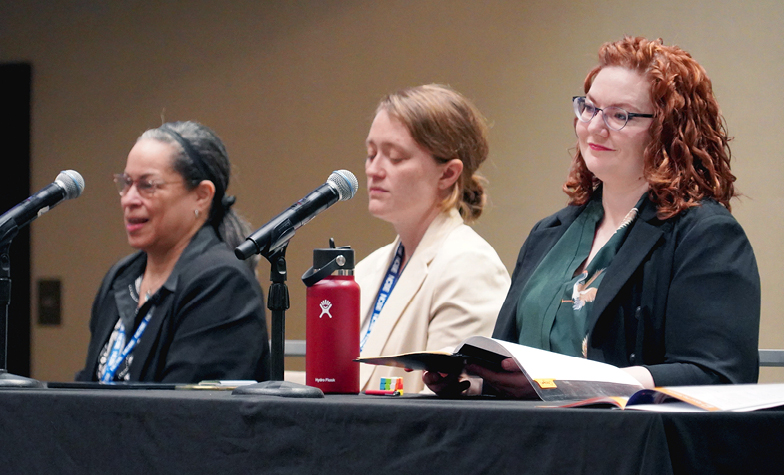
Inaugural Diane F. Bosse Award Honoree

Frederick J. Coolbroth (right) with conference attendees Sherry Hieber (NH) and Hon. Gordon J. MacDonald (NH).
Frederick J. Coolbroth of New Hampshire has been awarded the 2025 Diane F. Bosse Award for Excellence and Service in Bar Admissions in a ceremony held at the 2025 NCBE Annual Bar Admissions Conference in Seattle, Washington.
The Diane F. Bosse Award honors a bar examiner who demonstrates leadership, integrity, professionalism, and a commitment to serving the legal profession through bar admissions in their own jurisdiction and beyond. The award was established in November 2024 in memory of Diane F. Bosse, a former chair of the New York Board of Law Examiners and NCBE’s Board of Trustees. (For more about the Diane F. Bosse Award, visit ncbex.org/about/bosse-award.)
Coolbroth has served on the New Hampshire Board of Bar Examiners since 1987 and served as its chair from 1996 to 2010. He played a pivotal role in New Hampshire’s adoption of the Uniform Bar Exam. His work was also crucial to the development and implementation of the Daniel Webster Scholar Honors Program at the University of New Hampshire Franklin Pierce School of Law. He was a member of NCBE’s Multistate Performance Test Committee from 2009 to 2011 and continues to grade questions on the New Hampshire Bar Exam.
Coolbroth “embodies the qualities exemplified by Diane,” including her “extraordinary commitment to bar admissions, her integrity, her hard work, her thoughtful contributions, her persuasive advocacy, and her interest in innovation,” — New Hampshire Supreme Court Chief Justice Gordon J. MacDonald
Seattle in Photos
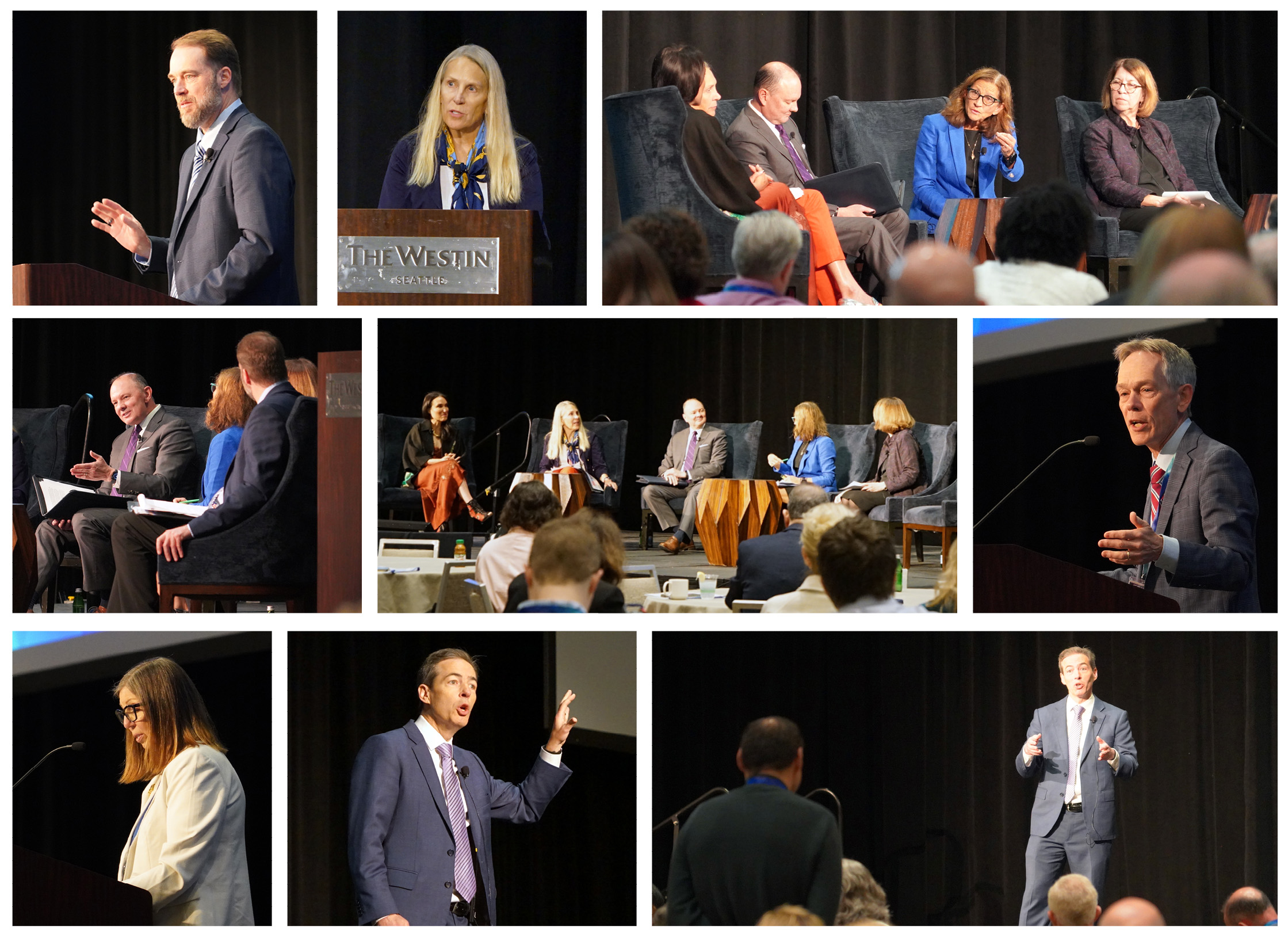
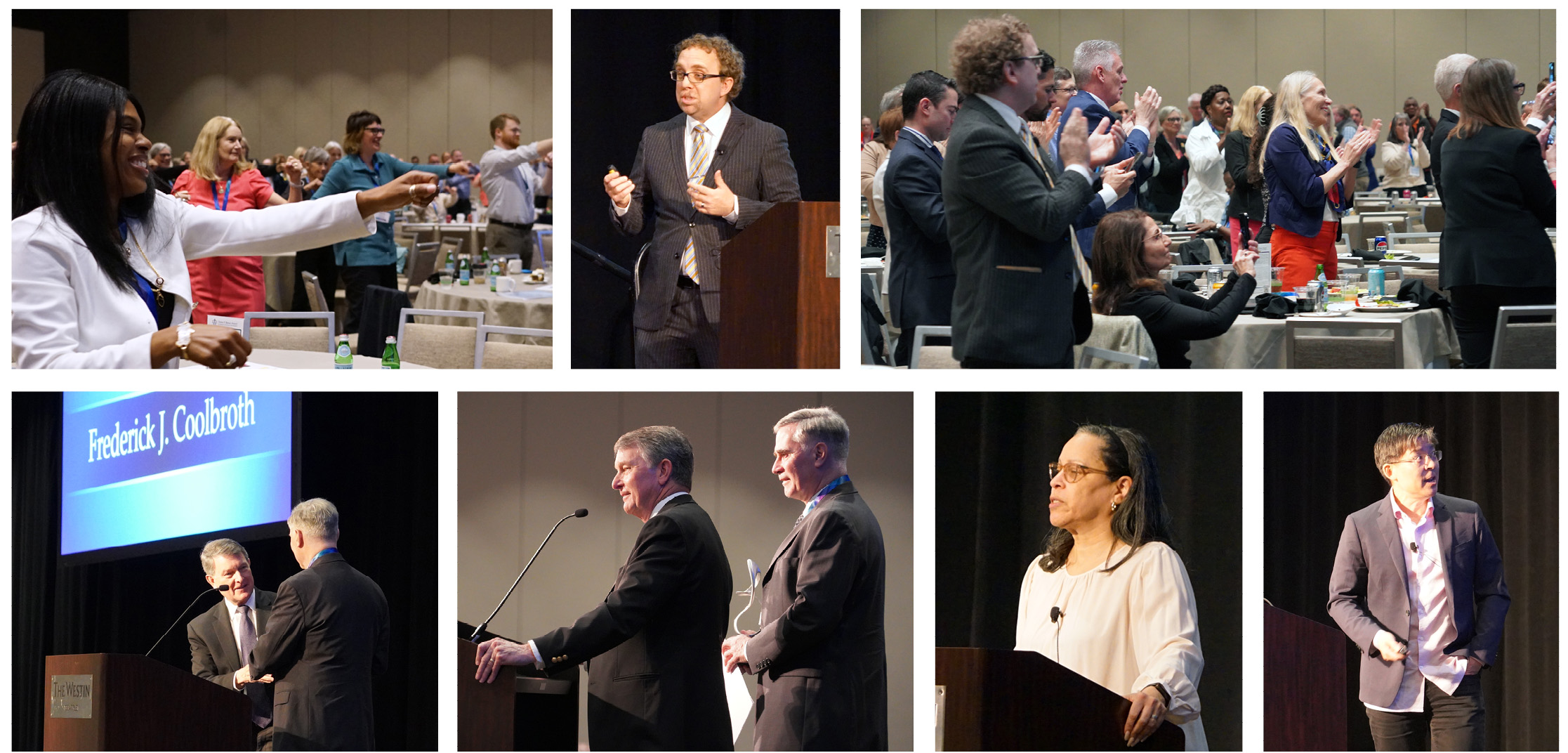


Contact us to request a pdf file of the original article as it appeared in the print edition.


